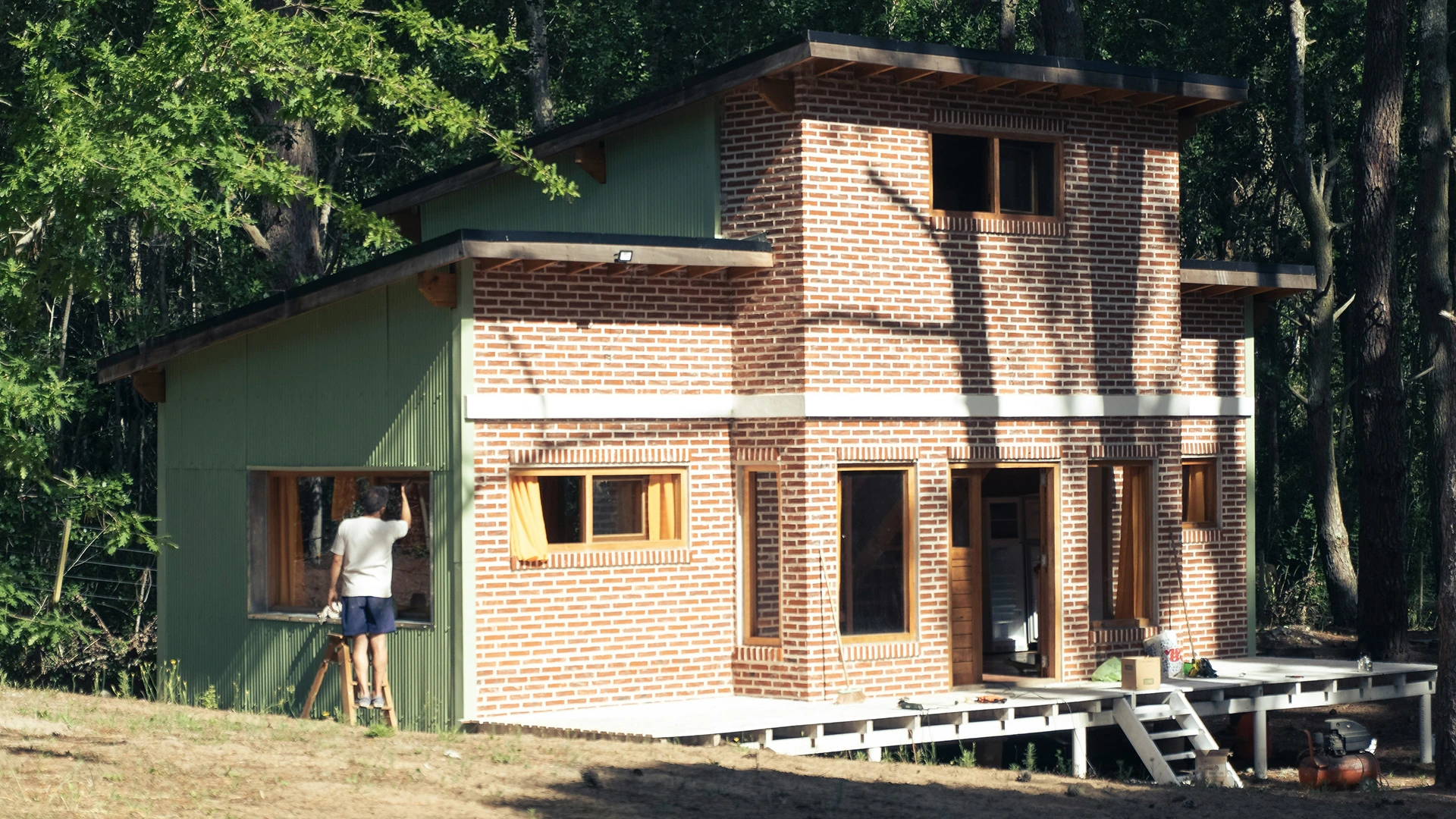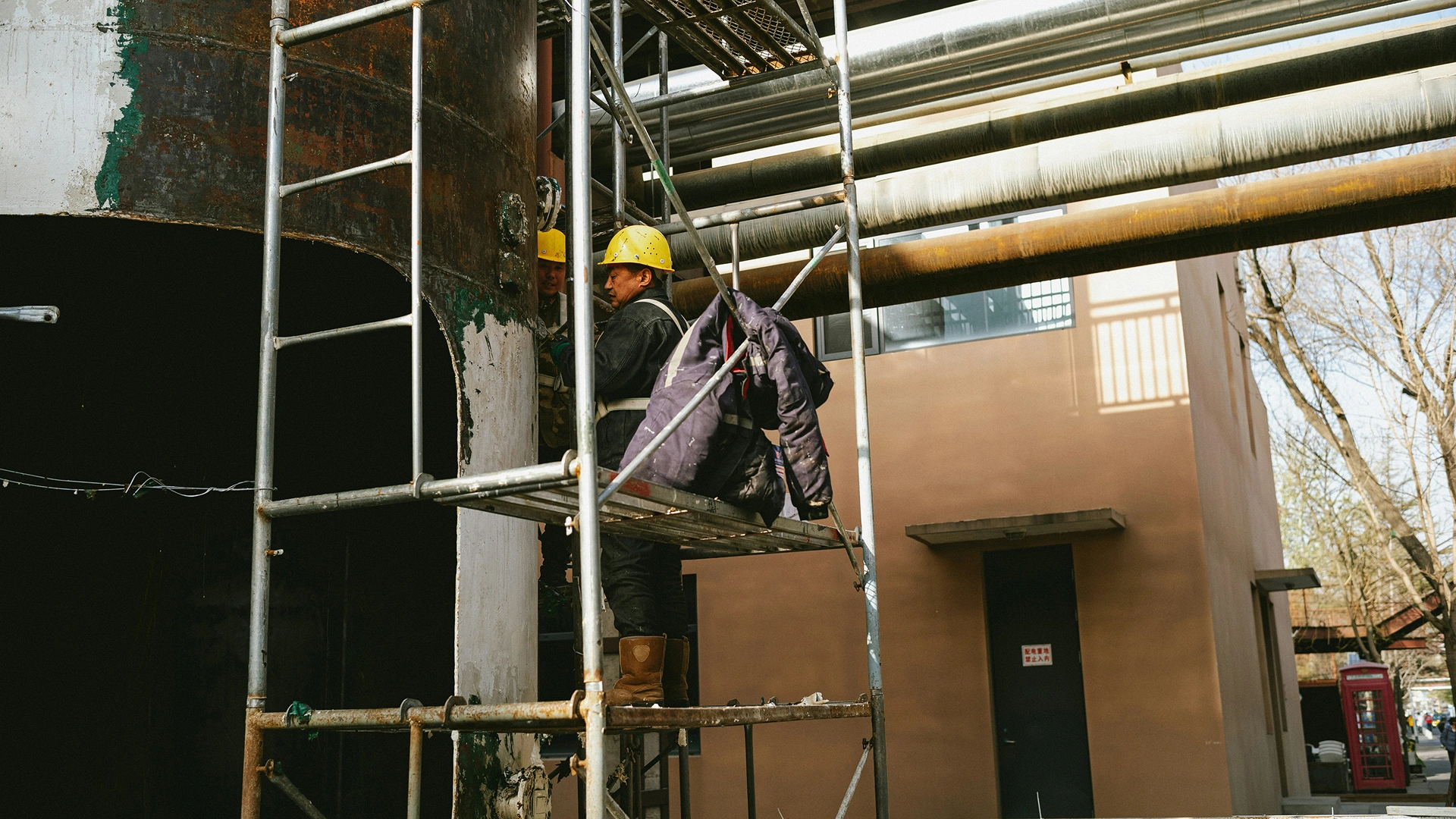Unlocking the Potential of Your Home: Essential Plans for Extensions
When it comes to expanding your living space, the right home extension plans can transform your property from a cramped environment into a sanctuary of comfort and style. But where do you start? Planning your home extension can feel overwhelming, yet it is crucial to ensure that your vision becomes a reality without unnecessary stress or complications.
In this blog post, we will guide you through the essential considerations for Planning Your Home Extension: Essential Plans to Consider. This topic is particularly relevant for homeowners looking to enhance their property, whether for a growing family or simply to increase the value of their home. Understanding the various planning elements can mean the difference between a successful build and an experience fraught with challenges.
We will explore key aspects such as obtaining the necessary permits, choosing the right designs, and selecting materials that reflect your style and needs. Additionally, we will discuss how engaging with professionals can streamline the process, ensuring that your project stays on track and within budget. By the end of this post, you will be equipped with valuable insights to help you navigate your home extension journey effectively.
The importance of planning cannot be overstated; it not only saves time and money but also helps you avoid common pitfalls that many face during construction. As you embark on this exciting project, remember that you can always turn to Home Extensions resources for further assistance and inspiration.
At 4×4 Built, we pride ourselves on our expertise in building and carpentry, ensuring that your home extension is not only well-planned but also executed with the utmost quality and care. If you have questions or need guidance, don’t hesitate to contact us for personalised support. Let’s turn your vision into reality!
What Are Home Extension Plans?
Home extension plans are detailed blueprints and guidelines that outline the process of expanding your living space. These plans are essential for anyone considering a home extension, as they provide a roadmap for design, construction, and compliance with local regulations. At 4×4 Built, we understand that these plans are not just about adding space; they are about enhancing your lifestyle and creating a home that meets your evolving needs.
Key characteristics of home extension plans include architectural designs, structural considerations, and a clear timeline for execution. Much like a recipe that guides you through the cooking process, these plans ensure that every element—from securing permits to selecting materials—is addressed. This level of detail prevents costly mistakes and delays, allowing for a smoother project experience. For instance, if you’re expanding your kitchen, your plans will specify the layout, utilities, and even how it integrates with your existing spaces.
Planning your home extension involves considering essential plans that align with the broader topic of home extensions. This means thinking about the functionality you desire, the aesthetics you wish to achieve, and how the extension will harmonise with the current structure. For example, if you envision a sunlit family room, your plans will include large windows and open spaces that invite natural light, creating a welcoming atmosphere for family gatherings.
A common misconception about home extension plans is that they are merely a formality. In reality, they are a crucial aspect of the building process, ensuring that your extension not only meets your vision but also complies with local building codes. At 4×4 Built, we guide you through this intricate process, ensuring that your home extension plans are tailored to your specific needs and adhere to all regulations, making your project as stress-free as possible.
Essential Terms for Your Home Extension Journey
As you embark on your journey to transform your living space, understanding some key terms can significantly enhance your planning process. Here are essential terms that will guide you through the world of home extension plans.
Planning Permission
A legal requirement in the UK that you must obtain before starting most types of construction work on your property, including home extensions. It ensures that the proposed changes comply with local regulations and zoning laws, maintaining the character of the neighbourhood and preventing any adverse effects on the environment or community standards. You will need to consider this when planning your home extension to avoid any legal issues down the line.
Building Regulations
These are minimum standards for design, construction, and alterations to buildings, ensuring the safety and health of occupants and the energy efficiency of buildings. Compliance with building regulations is crucial for your home extension plans, as failing to meet these standards can lead to costly corrections later on.
Architectural Plans
Detailed drawings and specifications created by an architect that outline the design, layout, and structure of your home extension. These plans are essential for both obtaining planning permission and ensuring that the construction process adheres to your vision and building regulations.
Structural Engineer
A professional who assesses and designs structures to ensure they can withstand loads and forces, such as weight from the roof or walls. Engaging a structural engineer is vital for complex home extension plans, as they provide the expertise to ensure your project is safe and viable.
Cost Estimate
A detailed breakdown of the anticipated expenses associated with your home extension project, including materials, labour, and permits. Understanding cost estimates helps you budget appropriately and avoid unexpected expenses during construction.
Project Management
The process of planning, executing, and overseeing a home extension project to ensure it is completed on time and within budget. Effective project management is crucial for a smooth home extension experience, enabling you to maintain quality and communication throughout the build.
Site Survey
An assessment of the physical site where the extension will take place, examining factors like land topography, existing structures, and drainage. A thorough site survey is critical to identify potential challenges or opportunities that could impact your home extension plans.
Understanding these terms is vital as you navigate the complexities of home extension plans. By familiarising yourself with these concepts, you can make informed decisions and ensure a smooth process in your journey to enhance your living space.
Weighing Up the Pros and Cons of Home Extension Plans
When considering home extension plans, it’s crucial to evaluate both the benefits and the drawbacks. This balanced perspective will help you make informed decisions as you embark on your home improvement journey.
Pros
Increased Living Space
One of the most significant advantages of home extension plans is the ability to create more living space. Whether you need an extra bedroom, a larger kitchen, or a home office, extensions can provide the room you need for a growing family or changing lifestyle.
Enhanced Property Value
A well-planned home extension can significantly boost the value of your property. Potential buyers are often attracted to homes with additional space, making your investment in an extension worthwhile when it comes time to sell.
Personalisation Opportunities
With home extension plans, you have the opportunity to tailor your space to fit your specific needs and style. This means you can create a unique environment that reflects your preferences and enhances your family’s comfort.
Improved Functionality
Extensions can also improve the functionality of your home. By creating open-plan living areas or adding dedicated spaces like a playroom or study, you can optimise how you use your home and make daily life more enjoyable.
Potential for Sustainable Living
Home extensions offer an opportunity to incorporate energy-efficient features, such as better insulation or solar panels. By planning your extension with sustainability in mind, you can reduce your carbon footprint and save on energy costs.
Cons
High Costs
One of the main drawbacks of home extension plans is the potential for high costs. Depending on the scale of the project, expenses can add up quickly, which may stretch your budget beyond initial estimates.
Disruption During Construction
Undertaking a home extension can cause significant disruption to your daily life. Construction noise, dust, and restricted access to parts of your home can be challenging, particularly for families with young children.
Planning Permissions and Regulations
Navigating the necessary planning permissions and building regulations can be a complicated process. Delays in obtaining approvals can slow down your project and potentially increase costs.
Unforeseen Issues
During construction, you may encounter unforeseen issues, such as structural problems or unexpected site conditions. These surprises can lead to additional costs and delays, making it essential to have a contingency plan in place.
Impact on Neighbours
A home extension can impact your neighbours, whether through construction noise or changes in the view. It’s important to consider how your plans may affect those living nearby and to communicate openly with them.
In summary, while home extension plans can offer numerous benefits, such as increased space and property value, they also come with challenges like high costs and potential disruption. By weighing these pros and cons, you can make a more informed decision that aligns with your needs and circumstances as you plan your home extension.
Top Tips for Planning Your Home Extension
Planning a home extension can be both exciting and overwhelming. With a plethora of decisions to make, having a structured approach is essential to ensuring your project runs smoothly and meets your family’s needs.
1. Define Your Objectives Clearly
Before diving into the planning process, take a moment to clearly outline your objectives. What do you hope to achieve with your home extension? Is it to create more living space, a dedicated home office, or perhaps a playroom for the children? Understanding your goals will guide the entire project and help you make informed decisions. For instance, if your priority is to accommodate a growing family, you might want to consider features like additional bedrooms or a larger kitchen space.
2. Consider Your Budget
Establishing a realistic budget is crucial for the success of your home extension plans. Take into account not only the construction costs but also potential expenses such as design fees, permits, and interior furnishings. We recommend allocating a contingency fund of about 10-15% of your total budget to cover any unexpected costs that may arise during the project. This way, you can ensure that financial constraints don’t hinder your dream extension.
3. Engage with Professionals Early
Consulting with professionals at the outset can significantly streamline your planning process. Whether it’s architects, builders, or project managers, their expertise can help you refine your ideas and offer insights on feasibility. For example, at 4×4 Built, we pride ourselves on our customer-first approach and are here to guide you through each stage of your project, ensuring that your vision is brought to life with precision.
4. Understand Local Regulations
Familiarise yourself with the local building regulations and zoning laws that may affect your home extension plans. This includes understanding the necessary permits required for construction, as well as any restrictions related to property lines or building height. We recommend visiting your local council’s website or consulting with a professional to ensure compliance and avoid any legal issues down the line.
5. Design for Future Needs
When planning your extension, think about not only your current needs but also future requirements. This could involve designing flexible spaces that can adapt over time, such as a home office that can later convert into a nursery. Consider incorporating features that will accommodate changes in lifestyle, such as universal design elements that enhance accessibility.
6. Integrate with Existing Architecture
Your home extension should complement the existing structure to create a cohesive look. Pay attention to architectural styles, materials, and colours. For example, if your home features traditional brickwork, consider using similar materials for your extension to maintain consistency. A well-integrated extension increases property value and enhances your home’s overall aesthetic appeal.
7. Plan for Natural Light and Ventilation
Incorporating ample natural light and ventilation into your home extension can greatly enhance the living experience. Consider large windows, skylights, or even bi-fold doors that connect your indoor space with the outdoor environment. This not only creates a brighter space but also improves air circulation, making your home more comfortable and inviting.
By following these practical tips, you can effectively navigate the complexities of planning your home extension. Remember, at 4×4 Built, we are here to support you every step of the way, ensuring that your project is a success and your vision is realised.

Essential Tips for Approaching Your Home Extension Plans
Embarking on home extension plans can be both exciting and daunting. To ensure your project runs smoothly and meets your expectations, consider these key tips that will guide you through the planning process effectively.
Define Your Goals Clearly
Before diving into plans, take the time to clearly define your objectives for the extension. Are you aiming to create more living space, add a home office, or enhance your property’s value? By establishing your goals, we can help tailor the project to meet your specific needs and ensure every decision aligns with your vision.
Set a Realistic Budget
Budgeting is crucial when planning home extension plans. Consider all potential costs, including construction, materials, and any additional fees like permits or professional services. By setting a realistic budget, you can avoid unexpected financial strain and ensure that your project remains manageable throughout its duration.
Research Local Regulations
Understanding local building regulations and zoning laws is essential for a successful extension. Research the necessary permits and guidelines to avoid any legal complications. We at 4×4 Built can assist you in navigating these requirements, ensuring compliance and a smoother process.
Consult with Professionals Early
Engaging with professionals early in the planning phase can save you time and stress. Seek advice from architects, builders, or project managers who can provide valuable insights and expertise. Our experienced team at 4×4 Built is ready to collaborate with you to develop effective and innovative home extension plans.
Consider Future Needs
When planning your home extension, think about your future needs as well as your current ones. Will your family grow? Do you plan to work from home? Designing with the future in mind can help create a space that remains functional and suitable for years to come.
Focus on Design and Aesthetics
The design of your extension should complement your existing home while reflecting your personal style. Pay attention to the architecture, materials, and colours used. Our team can help you create a harmonious design that enhances your property’s overall appeal.
Plan for Disruption
Home extensions can disrupt your daily routine, so it’s important to plan for this disruption. Consider temporary living arrangements or adjustments to your schedule during construction. By planning ahead, you can minimise inconvenience and keep the project on track.
By following these tips, you can approach your home extension plans with confidence and clarity. A well-thought-out strategy will not only enhance your living space but also ensure the project runs smoothly and meets your expectations.
Ready to Start Your Home Extension?
Frequently Asked Questions About Home Extension Plans
As you embark on the exciting journey of planning your home extension, you may have several questions. Below, we address some of the most common queries to help guide you through the process.
What are the key considerations when planning a home extension?
When planning your home extension, consider factors such as local council regulations, your budget, and the impact on your existing property. It’s also essential to think about how the new space will fit with your lifestyle and if it addresses your family’s growing needs.
How long does the home extension process usually take?
The duration of a home extension project can vary based on its complexity and size. Typically, it can take anywhere from a few months to over a year. We at 4×4 Built are committed to delivering projects on time without compromising quality.
Do I need planning permission for a home extension?
In most cases, yes, you will need planning permission for a home extension. However, there are certain exemptions under the Permitted Development Rights. We recommend consulting a professional to understand the specific requirements for your property.
How much will a home extension cost?
The cost of a home extension can vary significantly depending on various factors, including size, materials, and design. On average, you might expect to spend between £20,000 to £100,000. We can provide a tailored estimate based on your specific needs and preferences.
Can I live in my home during the extension process?
Yes, you can often remain in your home while the extension is underway. However, it may involve some inconvenience due to noise and limited access to certain areas. We aim to minimise disruption and keep you informed throughout the process.
What types of home extension plans are most popular?
Popular home extension plans include single and double-storey extensions, loft conversions, and kitchen/diner extensions. Each option can significantly enhance your living space and add value to your home.
How can 4x4 Built help with my home extension project?
At 4×4 Built, we offer comprehensive services that include expert building and project management tailored to your home extension plans. Our experienced team is dedicated to ensuring a seamless process from design to completion, prioritising quality and customer satisfaction.
We hope these FAQs have clarified some of your questions regarding home extension plans. If you have further inquiries or are ready to discuss your project, feel free to reach out to our expert team.
Final Thoughts on Your Home Extension Journey
In conclusion, planning your home extension involves careful consideration of various essential factors such as design, budget, and timeline. Throughout this blog post, we’ve explored the importance of having a solid plan in place to ensure your extension not only meets your current needs but also adds lasting value to your home. Understanding these home extension plans is crucial as they serve as the foundation for a successful project, allowing you to envision and create a space that truly reflects your family’s lifestyle.
Home extension plans are not merely a collection of ideas; they are vital to navigating the complexities of the building process. By giving careful thought to your requirements and engaging in thorough planning, you can transform your living space into something extraordinary. The insights shared here will help you tackle the challenges of extending your home, ensuring a smooth journey from concept to completion.
We encourage you to apply the knowledge you’ve gained and start drafting your own plans today. Whether you envision a larger kitchen, an extra bedroom, or a sunlit living area, the possibilities are endless. Should you require further assistance or wish to discuss your specific needs, feel free to reach out to 4×4 Built. Our team of experts is ready to support you every step of the way, ensuring your project is executed with precision and care.
As you embark on your home extension journey, remember to explore the broader topic of Home Extensions. With our experience and commitment to quality, 4×4 Built is here to help you turn your vision into reality, providing a seamless, stress-free process tailored to your unique needs.




